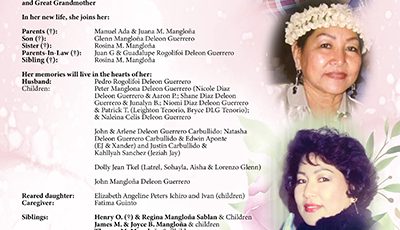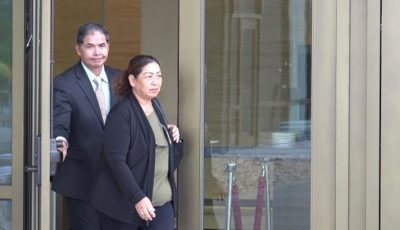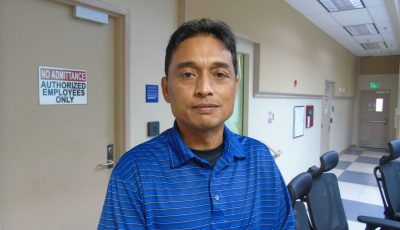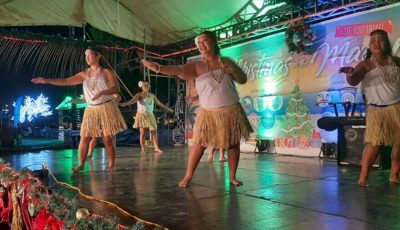AMID CW CAP BREACH, REGULATORS SAY:
‘Over 200 employees expected to leave casino’
The executive director of the regulatory body overseeing day-to-day operations of the Saipan casino says the casino is “hurting” with the ongoing contract worker crisis amid a breached cap on workers this fiscal year that is expected to shepherd out some 1,300 foreign workers from the Commonwealth by October.
Commonwealth Casino Commission executive director Edward C. Deleon Guerrero told Saipan Tribune that for July, the Best Sunshine International, Ltd. casino has over 130 affected employees who’ve had to leave the Commonwealth. June saw around 90 employees leave the casino.
“But that’s just what we’ve licensed,” he added in an interview, saying that exact number would have to be checked with BSI.
Casino executives have never bothered to respond to multiple emails forward to them through a casino lawyer on the extent of the impact of the breached cap.
They’ve been asked for the numbers of affected employees due to the breached cap and how many would leave in the months up to end of the fiscal year.
The casino has also been asked if they remain committed to these employees as an employer and if they will file petitions for the affected for employment under next year’s cap, among other questions.
“Some of [the casino employees] we license, some of them we do not license who were affected. We’re trying to balance this gaming and non-gaming issue,” Deleon Guerrero said.
Asked how the casino is responding to the issue, the executive director said they are trying to hire U.S. or local workers and added that he’s heard they are “trying to move up the training” schedules for local workers for casino operations.
If push comes to shove, the casino is expected to focus energy on its VIP operations, where a bulk of its revenue is earned through its casino in the T Galleria Mall.
During a meeting with the lawmakers of the House committee on commerce and tourism on Tuesday, regulators and House members discussed the potential of levying a gaming tax on the Saipan casino.
Rep. Edmund Villagomez (Ind-Saipan) has recently introduced House Bill 19-168, which would levy a 10-percent casino gaming revenue for the payment of the government’s outstanding land compensation claims, among others.
During discussion, Deleon Guerrero noted that—inclusive of the $3-million regulatory fee, $15 million exclusive license fee, and $20 million community chest fund combined with a reported $27 million in revenue tax—the casino will be paying about $71 million a year.
He said if lawmakers assess additional taxes, one of these fees, like the chest fund, “would have to go way.”
He said if lawmakers decide—despite these various payments—to squeeze more from the casino that the timing may not be appropriate, going on to note that the casino still operates out from a shopping mall.
He said if there are additional taxes to be imposed on the casino the government should at least wait for one year after Grand Mariana [Casino Resort] is open and is fully functional “so we have a better idea of what type of revenue is generated as a base.”
He said to try to hastily put together a 10-percent tax might not be prudent at this time.
“…I know right off the bat that if they were to renegotiate and pay those, they would probably have to forgo the $20-million community chest fund in lieu of the gaming tax. That is my personal observation,” Deleon Guerrero later said in discussion. “To attempt to add additional fees, whether through regulatory fee or taxes or any other form of assessing cost of doing business, might be detrimental to the industry considering it’s just about to open it’s hotel.”
Rep. Edwin K. Propst (Ind-Saipan) said he appreciated the feedback from the regulators because “they are in the know” but played down the casino’s contribution’s of BGRT as “standard” and “expected.”
He emphasized that the $15 million license fee should not be seen as a tax but a payment for “exclusivity,” which he said they are paying for all the right reasons.
“Best Sunshine has the sole license for a casino. If [Donald] Trump wants to come in and open up a casino, can he do it? No. That’s why they pay $15 million. Otherwise, we could have opened up the market and anybody could have brought in and open up a casino here. It’s not a tax, it’s a licensing fee for exclusivity,” he said.
Commission chair Juan Sablan said they just come from trip from Asia and from that, they are trying to make their regulations more “competitive.”
He went on to note the “market” for casino gaming and noted the Philippines, Hong Kong, Macau, and Singapore are much closer to this market. “We have to make sure this company grows to see how they operate at least the first year of operation and then we sit down and reassess our situation here. But everything is in a plus now, let’s not make it a minus,” he said.



























